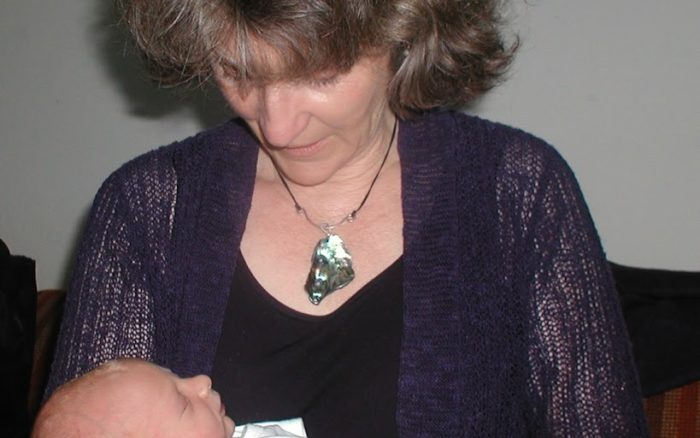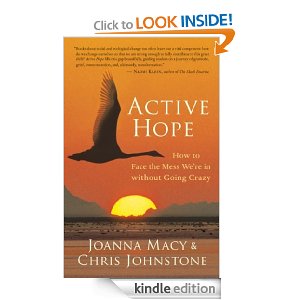| Birth of Elderhood: Birth of Our/My First Grandchild, Wesley, on his birth day, and also mine! |
Importance of Elders
Last month I had an experience that made me rethink the importance of elders and mentors.
I attended an eco-psychology workshop with a number of activists, land use peoples, and healers of various disciplines of all ages. The workshop, based on the work of Buddhist scholar and eco-philosopher Joanna Macy, addressed the impact of the environmental crisis on the human psyche. Coming from her own grief and despair about the state of the earth, Macy developed a process which moves from gratitude for what is present and the resultant opening of the heart, into shifts in perspectives, and finally, into action.
As we shared, I felt the intense anxiety of the young. Would it be safe to bring babies into this world? Would their good efforts make any difference at all? Will anything work?
As we sat in a circle, I felt the age differences. Those of us who were a generation or so older had grappled with these questions for many years. It was not as if we had solved many of the issues that we had worked to change, nor that we did not also feel anger, grief, and despair about current conditions, but many of us older participants had another perspective. Were we elders?
What is an elder? In old days elders imparted knowledge and advice about how to handle key life issues often based on past experience. They provided continuity, being living representatives of the life force. Mentors too could teach or lead a young person to develop necessary life skills. One of my first mentors was Mrs. Ebbs, my 7th and 8th grade English teacher, who encouraged me to write about what I knew, to describe the present, to use language to help the reader know my present. She gave me confidence in my writing ability as well as direction in how to develop it.
And there was Mr. Morr, my high school chemistry teacher who introduced me to Plato’s “Myth of the Divided Line” through C.P. Snow’s Science is a Sacred Cow. I see underlined in that yellowed paperback, “the highest truths can only be expressed in the form of myth”. This was the antecedent to my study of analytical psychology. Mr. Morr probably unintentionally pointed me in that direction.
In fact, I have been blessed in my life by a series of elders and mentors, and as I sat in the circle at that workshop, I remembered them, grateful for the guidance they offered me. But as each participant expressed despair and grief about the environment, I was well aware that we older people could offer little practical know-how about current situations. We no longer can be that kind of elder, at least in these environmental issues.
Then I remembered a time when I was in training in a program that was in dire trouble. The community was dealing with major crises and was no longer able to train. Instead it seemed to project all ills onto its trainees. Although the so-called training continued, the students lost heart and quit meeting as a student group, the will to live as a group having died.
But I think the mistake we made is that while the group did not need the older students’ disgruntlement and despair nor the culture it stemmed from, they needed our presence and energy to sustain them as the possibility of another way formed. They just did not need our “wisdom”.
I wonder if this applies with our young activists today as well. We who lived during the time of intense fear of nuclear holocaust, protested nuclear proliferation, as well as several wars, may not be able to pass down answers to the younger generation as elders did in times past, as we are in a time new attitudes and solutions must form, but we can show up and witness their struggles as well as ours. Our children and grandchildren are coming into a world with so many unknowns that there are few precedents to follow.
Macy holds that keeping open hearts in the face of the intolerable, thereby staying connected to each other and our land, is our hope for new perspectives and creative initiative and action. This is something we elders can facilitate through our presence. Our young need our interest, stories of our own struggles to face enormous problems with varying results, and the encouragement to love each other and the earth even under very difficult circumstances.

